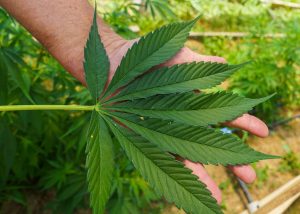RAPID CITY, SD – A developing push in Washington D.C. to recriminalize hemp products is facing bipartisan backlash, with lawmakers warning the move would devastate South Dakota’s growing hemp industry and impact farmers, small businesses, and consumers in the Black Hills and across the state.
The threat centers on language included in the House version of the Agriculture-FDA Appropriations bill that critics say would redefine legal hemp and wipe out an estimated 95% of the $28.4 billion national industry. For South Dakota, which only fully implemented its industrial hemp program after the 2018 Farm Bill, this action would jeopardize an industry that generated more than $44 million in revenue in 2023 and supports hundreds of jobs.
A bipartisan group of 35 members of Congress from 17 states sent joint letters to legislative leaders on Capitol Hill, including Senate Majority Leader John Thune (R-SD), urging them to reject “hemp-killing language” in any final spending bills. The letters instead call for science-based federal regulations that protect consumers and maintain the industry’s legal status.
One letter, spearheaded by Senator Ron Wyden (D-OR) and Senator Jeff Merkley (D-OR), specifically addressed Senate leadership, recommending a regulatory framework. The proposed rules include age restrictions, mandatory independent third-party lab testing, and standardized packaging, labeling, and manufacturing requirements.
“Consumer safety and protecting kids while promoting opportunities for national economic growth in the hemp industry can and must go hand-in-hand,” said Sen. Wyden. “Congress needs to get serious about pursuing common-sense safeguards to protect kids and consumers and encourage innovation instead of a one-size-fits-all approach that hinders economic development and doesn’t keep kids safe.”
The current legal framework for hemp stems from the 2018 Farm Bill, which legalized the crop and its derivatives containing less than 0.3% delta-9 tetrahydrocannabinol (THC) on a dry weight basis, distinguishing it from marijuana. The industry has since expanded into food, fiber, and wellness markets nationwide.
South Dakota farmers depend on the continued viability of all three hemp markets- grain, fiber, and retail- making the current federal appropriations fight a critical issue for agricultural interests in the state. Opponents of the language argue that recriminalization would instantly drive thousands of acres of crop value, including a reported 3,900 acres in South Dakota, to zero.





